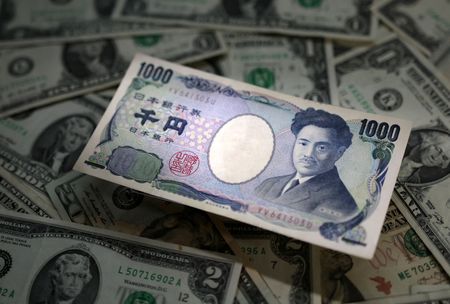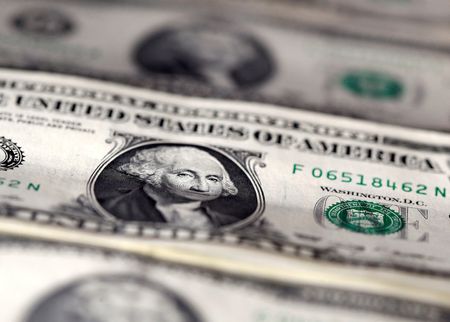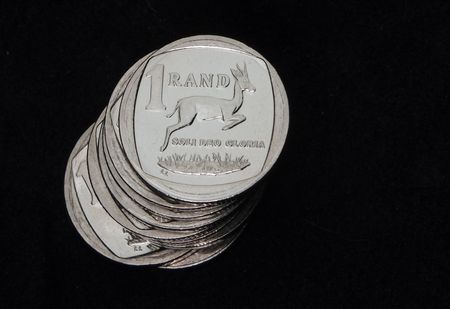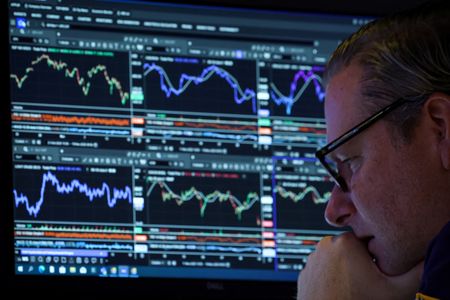By Elizabeth Howcroft
PARIS (Reuters) -European shares fell on Friday and the downturn looked set to continue on Wall Street, extending a selloff as traders worried about tech stock valuations.
U.S. jobs data presented a mixed picture, adding to traders’ uncertainty and diminishing hopes that the Federal Reserve will cut rates again this year.
Technology stocks led Wall Street sharply lower on Thursday with a positive earnings report from chipmaker Nvidia not enough to dispel fears about an AI-fuelled market bubble. The downturn continued during Friday’s Asian trading, as investors dumped riskier assets.
At 1219 GMT, the MSCI World Equity Index was down 0.5% and on track for a 3.2% weekly drop, its biggest drop since March.
The pan-European STOXX 600 was down 0.8% and London’s FTSE 100 was down 0.4%.
Wall Street futures also fell. S&P 500 futures were down 0.2%, and Nasdaq futures were down 0.5%.
‘HIGHLY COUNTERINTUITIVE’ MOVES
Already under pressure from the wider downturn, European defence shares fell to their lowest since early September, after Ukraine’s president said he was ready for “honest” work on a U.S.-backed plan to end the war. The Russian rouble also hit a five-week high on renewed expectations of a peace plan.
Thursday’s delayed U.S. jobs data showed that employment growth accelerated in September but the jobless rate was at its highest in four years.
Hani Redha, a portfolio manager at PineBridge Investments, called the market reaction to the jobs data and Nvidia earnings “highly counterintuitive”.
“I would primarily put this down to stretched positioning and heightened sensitivity to this AI bubble talk, which I think is overblown,” he said, adding that there are parts of the market which are justifiably under pressure and not supported by fundamentals.
“It may be that Nvidia was a kind of an ATM machine yesterday – people selling what they can, to book gains, to cover for speculative losses elsewhere.”
Global markets have been driven to record highs by an AI investment frenzy, but some market participants are becoming concerned about the risk of massive spending not translating into meaningful progress. Alphabet’s CEO Sundar Pichai earlier this week said that no company would be unaffected if the AI boom collapses.
Still, global equity funds attracted net inflows for the ninth week in a row, in the week up to November 19, data showed. Investors are still expecting further AI-driven gains.
“AI remains a key driver of equity markets. We expect rising capex and accelerating adoption to push AI-linked stocks higher in the year ahead,” said UBS’s chief investment officer Mark Haefele in a monthly note.
YEN BOOSTED BY VERBAL INTERVENTION
Japan’s finance minister, Satsuki Katayama, said that intervention in the yen was a possibility, in her strongest comments so far about the currency, which has fallen around 6% since Prime Minister Sanae Takaichi was elected leader of her party.
The yen found some support after the comments, and was at 156.84 per dollar, still within reach of Thursday’s 10-month low of 157.9.
Japan’s cabinet approved an economic stimulus package worth around $135 billion.
The euro was steady at $1.1497 and the dollar index also little changed at 100.39, set for a 0.2% weekly gain.
Euro zone bond yields fell, with the benchmark 10-year German Bund yield retreating from a six-week high, down 4 basis points at 2.6838%.
Euro zone business activity grew steadily this month, PMI data showed.
Oil prices fell for the third day running, as the U.S. push for a Russia-Ukraine deal to end the war raised the possibility of more oil supplies being brought onto the market.
Bitcoin fell to a seven-month low of $81,668.
Gold was down 0.7% at $4,047.46 per ounce.
(Reporting by Elizabeth Howcroft; Editing by Kirsten Donovan)








